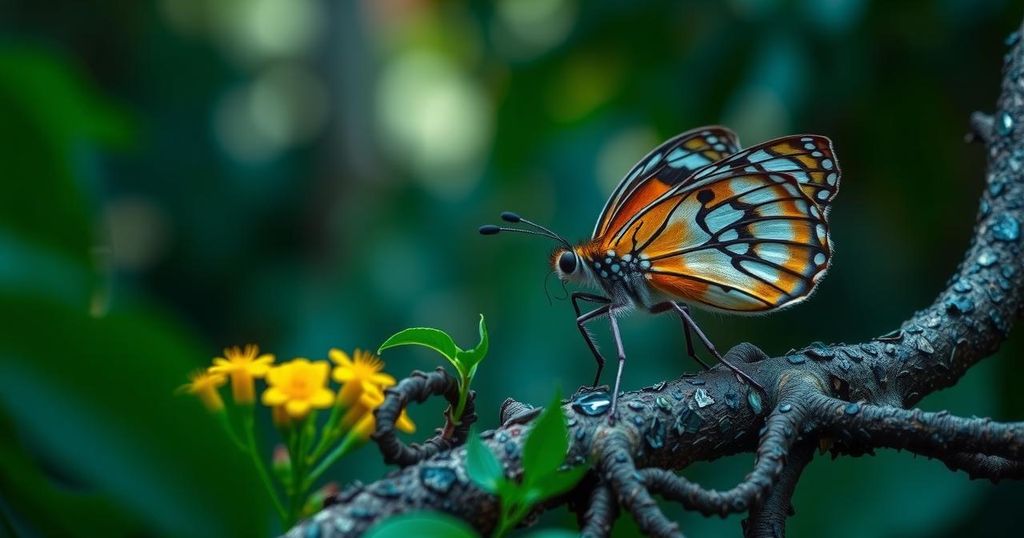COP16: Addressing Biodiversity Decline and Conservation Efforts
COP16 in Cali, Colombia, gathers global leaders to assess commitments to biodiversity conservation amid rising concern over species extinction and habitat loss. The conference builds on agreements from COP15, where nations pledged to protect 30% of land and marine ecosystems by 2030. As biodiversity faces unprecedented threats from human activities and climate change, urgent action is needed to reverse this trend.
The sixteenth Conference of the Parties (COP16) to the Convention on Biological Diversity is currently convening in Cali, Colombia, where global leaders are evaluating progress made in the conservation of the natural world. This summit comes at a critical time, as concerns mount regarding the significant decline in biodiversity, affecting both species populations and the habitats essential for sustaining life on Earth. At the preceding biodiversity summit, COP15, held in December 2022, a landmark agreement was reached, wherein nearly 200 nations pledged to counteract biodiversity loss by the end of the decade. Biodiversity encompasses the vast array of life forms on our planet, including animals, plants, fungi, and microorganisms. These diverse organisms are crucial in providing essential resources for human survival, such as clean water, air, food, and medicine. Furthermore, plants play a fundamental role in environmental maintenance by purifying the air, mitigating climate change, and acting as natural barriers against erosion by rising sea levels. Despite the natural process of species extinction, current extinction rates stand alarmingly high, occurring 100 to 1,000 times faster than what would be expected under natural circumstances. The International Union for Conservation of Nature (IUCN) reports that over 45,300 of the more than 163,000 assessed species are threatened with extinction. Moreover, estimates suggest that at least one million species are at risk, predominantly due to human activities. Crucial threats to biodiversity arise from practices such as overharvesting, logging, hunting, and overfishing. Between 2001 and 2021, significant forest degradation resulted in a loss of 437 million hectares of tree cover, severely impacting ecosystems. The World Wildlife Fund (WWF) highlights the acute decline of wildlife populations in regions like Latin America, where biodiversity has suffered drastic setbacks due to habitat destruction and overexploitation. Additionally, the increasing pace of climate change poses additional challenges, with the United Nations emphasizing the necessity of limiting global temperature rises to mitigate further biodiversity loss. In addressing these pressing challenges, the Kunming-Montreal Global Biodiversity Framework established at COP15 mandates the protection of 30% of terrestrial and marine ecosystems by 2030. The framework seeks to achieve four main objectives: enhancing conservation efforts, promoting sustainable resource use, ensuring equitable distribution of natural resources, and increasing financial assistance for biodiversity preservation initiatives. Notably, annual funding commitments target a substantial increase aimed at supporting biodiversity projects. COP16, ongoing until November 1, 2023, serves as an opportunity for nations to assess their commitments to biodiversity conservation amidst reports of potential delays in fulfilling pledges. Colombian Environment Minister Susana Muhamad has characterized the summit’s theme as “Peace with Nature,” encouraging a reevaluation of humanity’s relationship with the environment. Prestigious leaders, including Brazilian President Luiz Inácio Lula da Silva and Mexico’s new president, Claudia Sheinbaum, are expected to participate in this pivotal dialogue.
The ongoing COP16 conference focuses on biodiversity, an essential element for sustaining life on Earth. Acknowledging the alarming rate of species extinction attributed to human actions, the conference aims to hold nations accountable for their pledges made at COP15. The critical state of biodiversity necessitates immediate action, reflected in international agreements established to curtail further decline and encourage conservation efforts.
In summary, COP16 represents a crucial platform for global leaders to evaluate and reaffirm their commitments to biodiversity conservation. The summit is particularly significant as it comes on the heels of previous commitments made at COP15, amidst widespread concern regarding biodiversity loss. Long-term efforts geared toward protecting ecosystems are vital for ensuring a harmonious coexistence between humanity and nature, thereby safeguarding essential resources for future generations.
Original Source: www.bbc.com




Post Comment